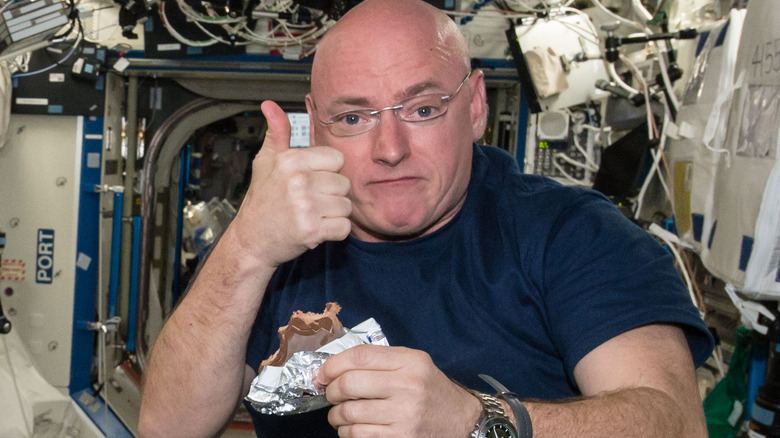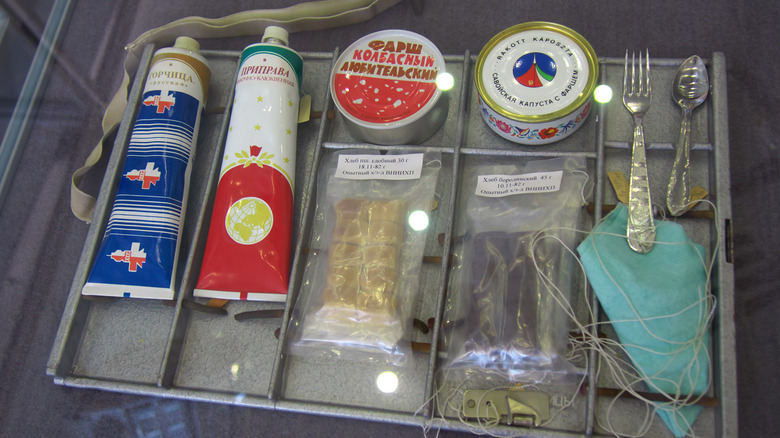Here's What Happens To You When You Eat In Space
Astronauts have one of the more complicated, highly specialized jobs in the world, but they still need to do all of the mundane, day-to-day activities necessary for any human to stay alive, including eat. Sometimes, eating in space is pretty similar to eating on Earth; at other times, it's its own unique, extremely specific experience.
Per NASA, astronauts eat three meals a day and can choose from a variety of foods, including fruit, nuts, meat, and candy, and can drink water, coffee, tea, and juice. They can even use condiments, meaning yes, there is such a thing as space mustard and it's just mustard. Space salt and pepper, however, come in liquid form for use in microgravity spaces to keep granules from floating away and getting into machinery, air vents, or astronauts' noses and mouths. There's an oven for heating food, but there's no refrigeration, which needs to be taken into account when storing and preserving food for long space missions. Another consideration is foods' disposable packaging, some of which is designed to prevent food from floating off and all of which is created with flexibility, ease of use, and efficient storage in mind.
As reported by the Smithsonian National Air and Space Museum, John Glenn was the first American to eat in space, during the Friendship 7 flight of 1962. Scientists didn't know if it was possible for people to ingest and absorb nutrients while in space; fortunately, it turned out that they could indeed do so.
The importance of a well-balanced space diet
Per the Smithsonian National Air and Space Museum, the Apollo program outfitted astronauts' spacesuits with a Contingency Feeding System that allowed for the consumption of liquid food through a port in the helmets in the case of the cabin becoming depressurized and the astronauts having to live in their suits. Starting with Apollo 13, the spacesuits also contained canteens to allow astronauts to drink water while in the suit, including during work on the surface of the moon.
The Lunar Planetary Institute reports that people tend to be less hungry in space. Astronauts lose an average of 5% of their body weight during a four- to six-month stay on the Space Station. Doctors encourage astronauts to eat balanced meals even when they're not hungry and to consume food that's high in calories. Other health concerns specific to astronauts include their need for extra calcium, as the lack of gravity signals bone cells to stop producing new bone or breaking down unnecessary bone. They also take Vitamin D supplements, as they avoid sun exposure to prevent harm from ultraviolet radiation, and eat food rich in folate to repair cellular damage from solar radiation and breathing pure oxygen during space walks. Another issue specific to astronauts is the accumulation of iron in the blood; while on Earth, it's often a challenge for people to get enough iron, but in space, bodies produce fewer red blood cells and the volume of blood is reduced. This leads to bodies storing extra iron in the liver, which can cause harm.

